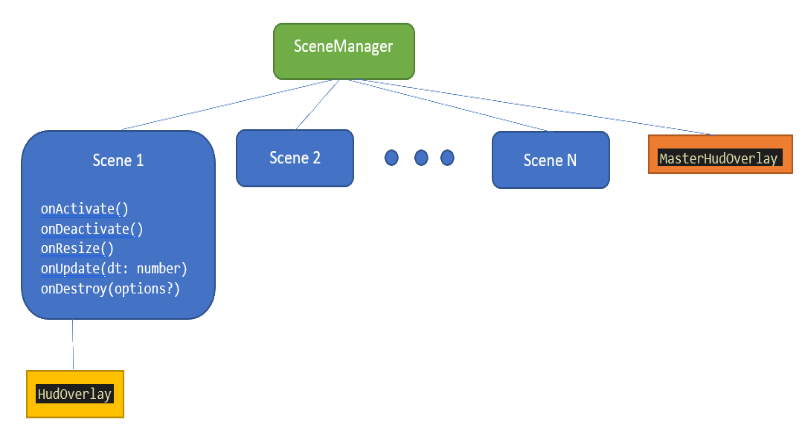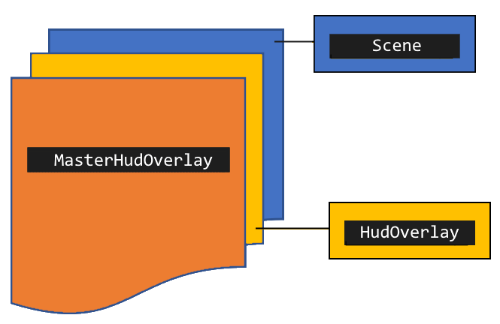Link to API documentation
pixi-scenegraph is a package providing scene management features for PIXI v8 It allows defining scenes and switching between them e.g. MainMenuScene, GameScene, OptionsScene etc.
The following image represents the object hierarchy:
pixi-scenegraph is written in typescript and aimed for typescript users but not limited to typescript only projects.
*.ts -> import {SceneManager} from "pixi-scenegraph";
*.js -> var sg = require("pixi-scenegraph"); let scm = new sg.SceneManager();
A Scene is like a PIXI stage, a container holding all objects we want to display. Think of scenes as game state containers e.g: loading scene, menu scene, options scene, in-game scene etc.
A scene must have a unique name and the SceneManager can reference scenes by that name:
sceneManager.ActivateScene("sceneName");
Only one scene at a time is active and only the active scene is rendered. A scene can have a HudOverlay which is a container object rendered over the scene. In addition a MasterHudOverlay can be attached to the SceneManager. The MasterHudOverlay is rendered over all other content.
Z-Index
const scm = new SceneManager(renderOptions);
const myScene = new MyScene();
scm.AddScene(myScene);
scm.ActivateScene(myScene); // or by name scm.ActivateScene('scene_name')
const myScene1 = new MyScene1(); // name id 'scene_1'
const myScene2 = new MyScene2(); // name id 'scene_2'
const menuScene = new MenuScene(); // name id 'menu'
scm.AddScene(myScene1);
scm.AddScene(myScene2);
scm.AddScene(menuScene);
scm.ActivateScene(menuScene);
inside the MenuScene class:
btnStart.onClick = () => this.sceneManager.ActivateScene("scene_1");

